Want to save with Paschal? Don’t miss our current offers and specials

Want to save with Paschal? Don’t miss our current offers and specials
Return to Paschal Resource & Education Hub
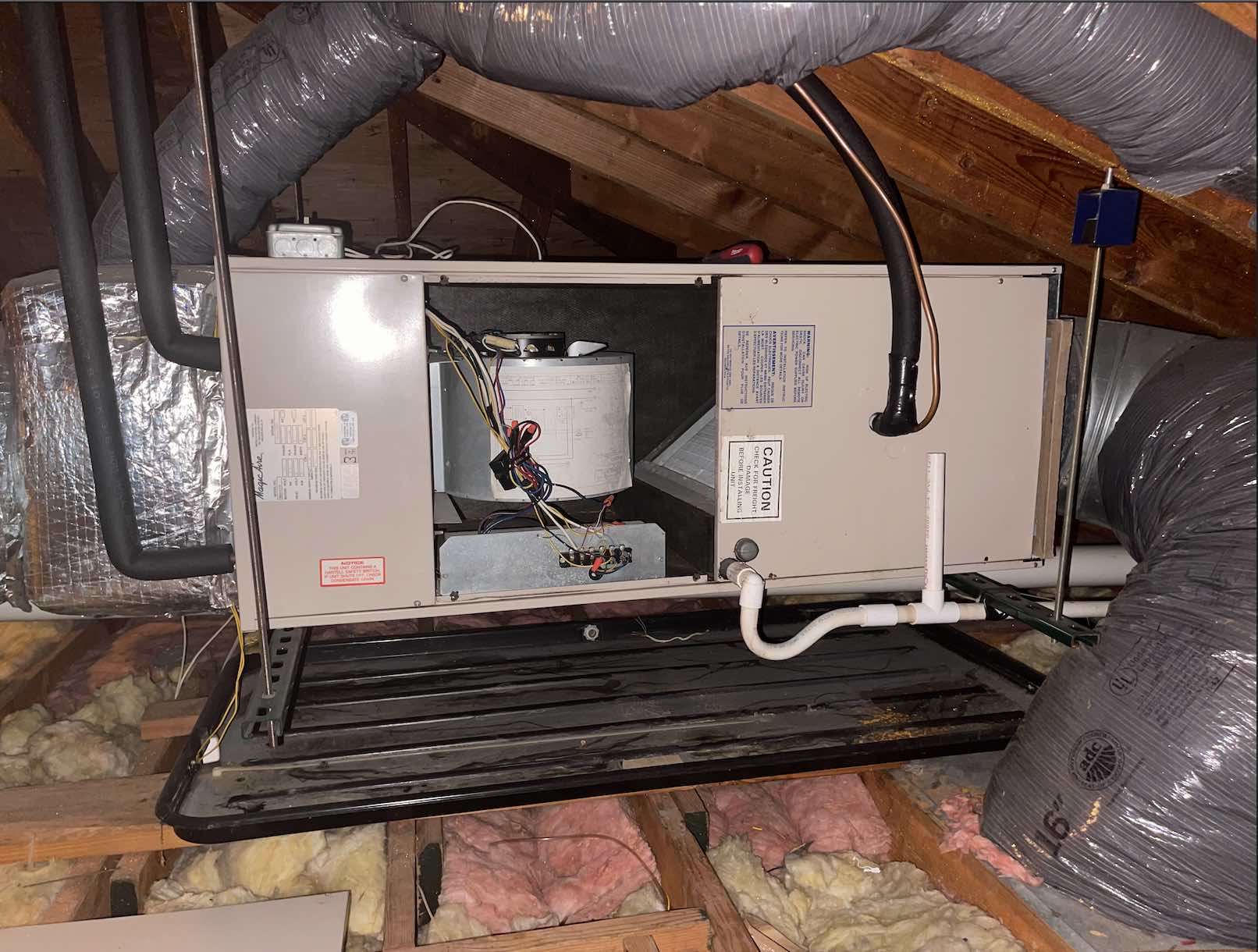
If you’re a homeowner, chances are you’ve probably come across the term “air handler” while dealing with heating, ventilation, and air conditioning (HVAC) systems. But, what is an air handler? How does it work? What role does it play in maintaining your home’s comfort? We’ll delve into these questions and more, providing you with a comprehensive understanding of air handlers, their importance in HVAC systems, how to maintain them, and common problems homeowners face.
This is a complex subject, so get comfortable and prepare to immerse yourself in the world of air handlers. Remember, knowing about this key component of your HVAC system could save you a lot of time, energy, and money in the future.

In the simplest terms, an air handler is a device that circulates conditioned air throughout your home. It is a critical part of your HVAC system, working closely with your air conditioner or heat pump to distribute cool or heated air. However, it’s more than just a simple fan blowing air. The air handler houses several key components that contribute to air conditioning, heating, and circulation.
An air handler is usually located inside the house, often in the attic, basement, or a dedicated closet space. It’s connected to the ductwork that runs throughout your home, allowing for the distribution of conditioned air to different rooms.
But, this is just the tip of the iceberg. To truly understand the role and functioning of an air handler, we need to dissect it and explore its inner workings. Let’s dive in.
An air handler is more than a simple box that blows air; it’s an intricately designed machine composed of several key components. Each plays a unique role in the process of heating, cooling, or circulating air. Let’s explore these components and understand their functionalities.
At the heart of the air handler is the blower or fan. This device is responsible for circulating air throughout your home. It pulls in unconditioned air from various parts of your house, pushes it through the other components for conditioning, and then forces the treated air back into your home through the ductwork.
The speed of the blower can often be adjusted depending on the specific cooling or heating needs. Some modern air handlers feature variable speed blowers that can precisely control airflow, leading to improved comfort and energy efficiency.
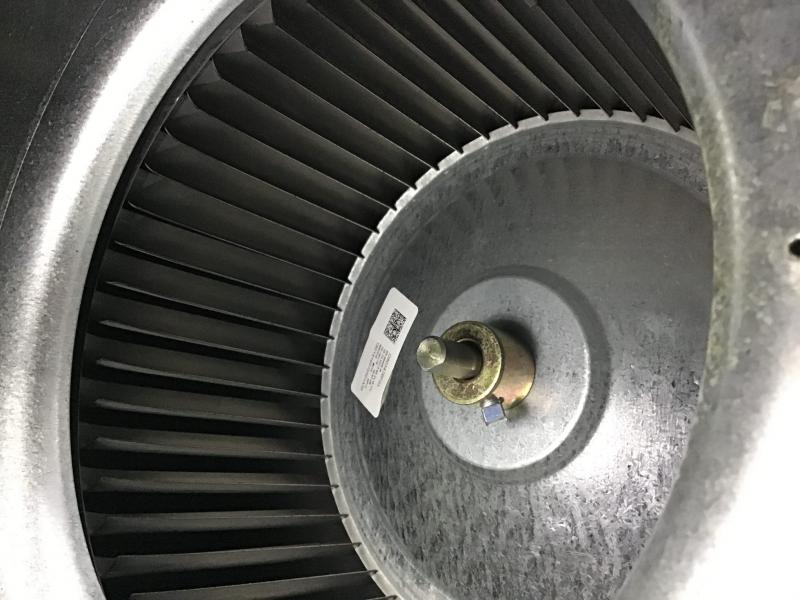
The evaporator coil is another critical component of the air handler. When your system is in cooling mode, the refrigerant (a special liquid that can change states between liquid and gas) flows through this coil. The warm air from your home is blown over the cold evaporator coil. The refrigerant inside the coil absorbs the heat from the air, cooling it down before it’s circulated back into your home.
Moreover, as the warm air passes over the cold coil, it also loses some of its moisture – this is the principle behind the dehumidifying effect of your air conditioner.
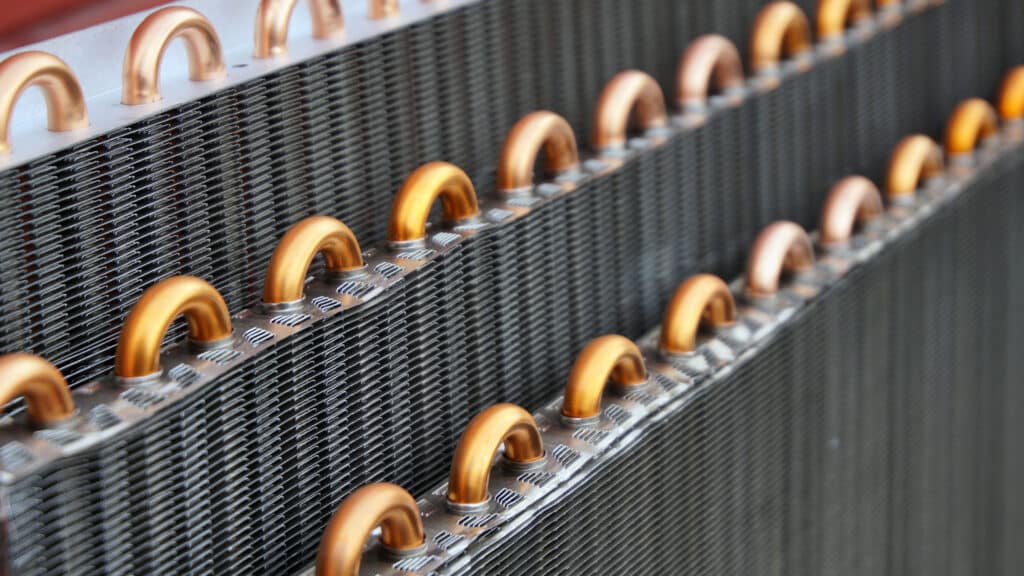
When in heating mode, the air handler uses electric heating elements or heat strips to warm up the air. These work like the heating elements in an electric oven or a toaster. When electricity passes through them, they heat up, and the blower circulates air over these hot elements, thereby warming it before it’s distributed throughout your home.
It’s important to note that not all air handlers have heating elements – it depends on whether your HVAC system uses the air handler for heating or if you have a separate furnace.
Before the air is conditioned, it passes through an air filter. This essential component removes particulates like dust, pollen, and other contaminants from the air. Not only does this improve the air quality in your home, but it also prevents these particles from accumulating on the evaporator coil or other parts of the system, which could reduce the efficiency and lifespan of your HVAC system.
Air filters need to be replaced or cleaned regularly to maintain their efficiency.
Air handlers are also equipped with dampers, adjustable plates that control the flow of air within the ductwork. By opening and closing, these dampers can control the volume and direction of air, helping to balance the distribution of conditioned air to different areas of your home.
Now that you understand the essential components, let’s examine how they all work together in an air handler.

Whether your HVAC system is heating, cooling, or merely circulating air, the air handler plays a crucial role. While the process may differ slightly based on the specific function, the general steps remain the same.
This cycle repeats multiple times per hour, ensuring your home stays at the desired temperature and humidity levels.
There’s no one-size-fits-all when it comes to air handlers. They come in different types, each designed to meet specific needs. Let’s look at the three main types of air handlers:
Residential air handlers, as the name suggests, are designed for homes and small commercial spaces. They’re generally compact and are often integrated with an air conditioner or heat pump to form a complete HVAC system.
Commercial air handlers are larger and have more complex designs. They’re used in office buildings, factories, or any large commercial spaces that require a substantial amount of heating or cooling. Some commercial air handlers even have additional components, like humidifiers or economizers, for better control over the indoor climate.
Make-up air units (MAUs) are a specialized type of air handler used in settings where indoor air quality is a priority, such as restaurants, laboratories, and healthcare facilities. These units not only condition the air but also replace it entirely with fresh, outdoor air. This helps to manage odors, control humidity, and maintain a healthy indoor environment.
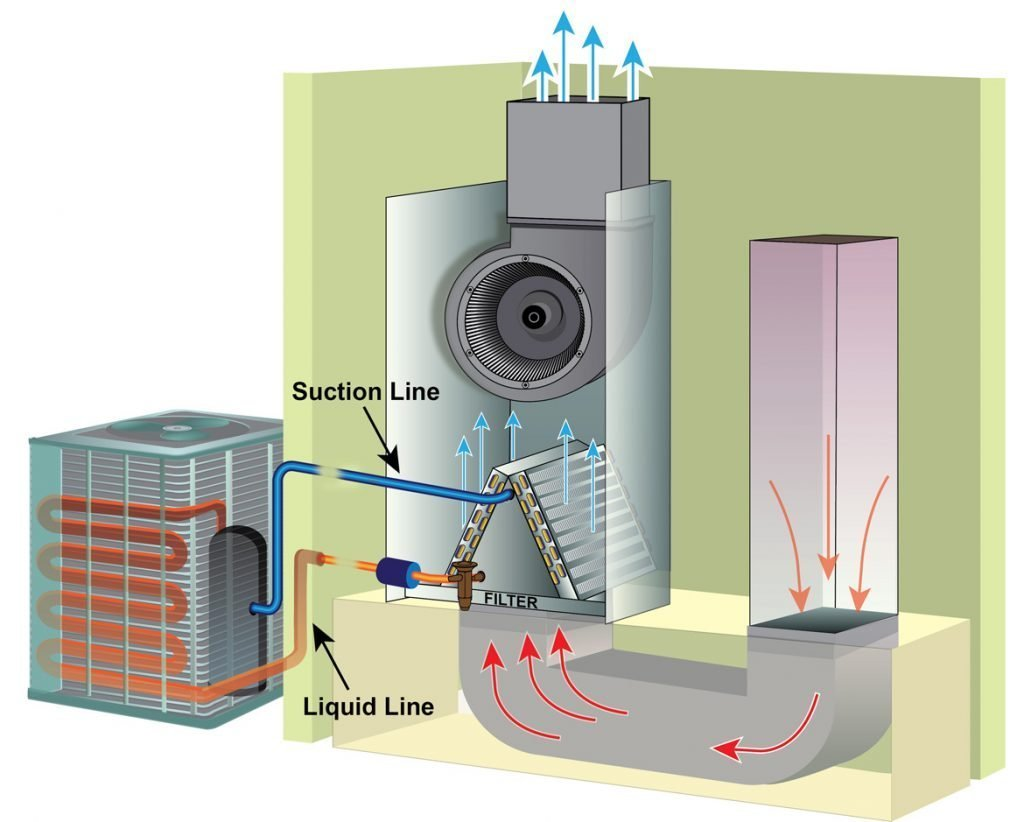
The air handler is the heart of any HVAC system, responsible for the circulation of conditioned air throughout your home. Without a properly functioning air handler, your HVAC system would struggle to maintain a comfortable indoor climate.
Let’s examine why air handlers are so essential:
Like any machine, air handlers can encounter problems that affect their performance. Understanding these issues and their solutions can help you maintain an efficient HVAC system. Here are some common problems and what you can do about them:
One of the most common issues with air handlers is clogged air filters. Over time, dust and other particulates can accumulate on the filter, restricting airflow. This not only reduces the efficiency of your HVAC system but can also cause other problems, like ice formation on the evaporator coil.
Solution: Regularly check and replace your air filters. The frequency will depend on the type of filter you use, the air quality in your home, and whether you have pets. However, a good rule of thumb is to check your filter once a month and replace it at least every 3 months.
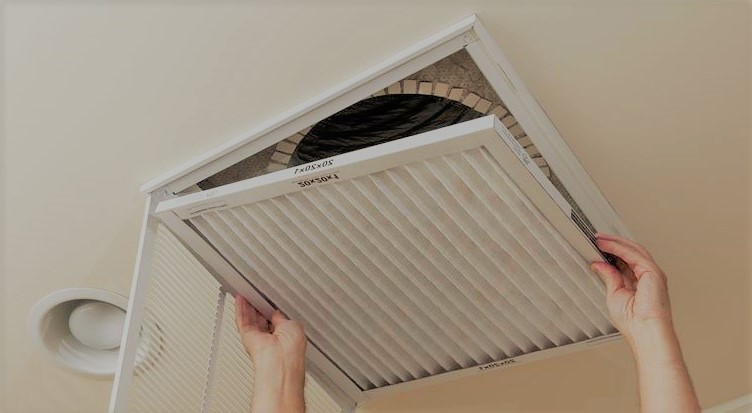
If your blower motor fails, your air handler won’t be able to circulate air, leading to discomfort in your home. Signs of a faulty blower motor include unusual noises, poor airflow, or a system that runs continuously.
Solution: A faulty blower motor typically requires professional attention. Contact a trusted HVAC service provider like Paschal Air, Plumbing & Electric to diagnose and fix the problem.
Leaky ducts can reduce the efficiency of your air handler and your HVAC system as a whole. If conditioned air is escaping from your ducts, your system will have to work harder to maintain the desired temperature.
Solution: Regular inspections and maintenance can help detect and seal any leaks in your ductwork. Consider having your ducts professionally inspected at least once a year.
If your evaporator coil freezes over, it can’t effectively cool the air, leading to poor performance and possible system breakdowns. This often happens when there’s insufficient airflow, such as from a dirty air filter, or if the refrigerant is low.
Solution: Regularly change your air filter to maintain good airflow and have your HVAC system serviced annually to ensure the refrigerant level is adequate. If you notice ice on your evaporator coil, turn off your system and contact a professional.

Maintaining your air handler is key to the longevity and efficiency of your HVAC system. Here are some tips to keep your air handler in top shape:
Q: Where is the air handler located?
Q: Can I use my HVAC system if the air handler is not working?
Q: How often should I replace the air filter in my air handler?
Q: How long does an air handler last?

Understanding your air handler is key to optimizing the comfort and air quality in your home. With the right care and maintenance, this essential component of your HVAC system can provide years of efficient service, keeping your home comfortable in every season.
However, we understand that dealing with HVAC systems can be complex and sometimes overwhelming. That’s why we’re here to help. At Paschal Air, Plumbing & Electric, we have the expertise and experience to handle all your HVAC needs, from routine maintenance to system repairs and replacements.
If you need assistance with your air handler or any other aspect of your HVAC system, don’t hesitate to schedule an appointment with our team of professionals. We’re committed to delivering top-quality service that ensures your comfort and satisfaction. Remember, when it comes to the comfort of your home, trust only the Professionals at Paschal.